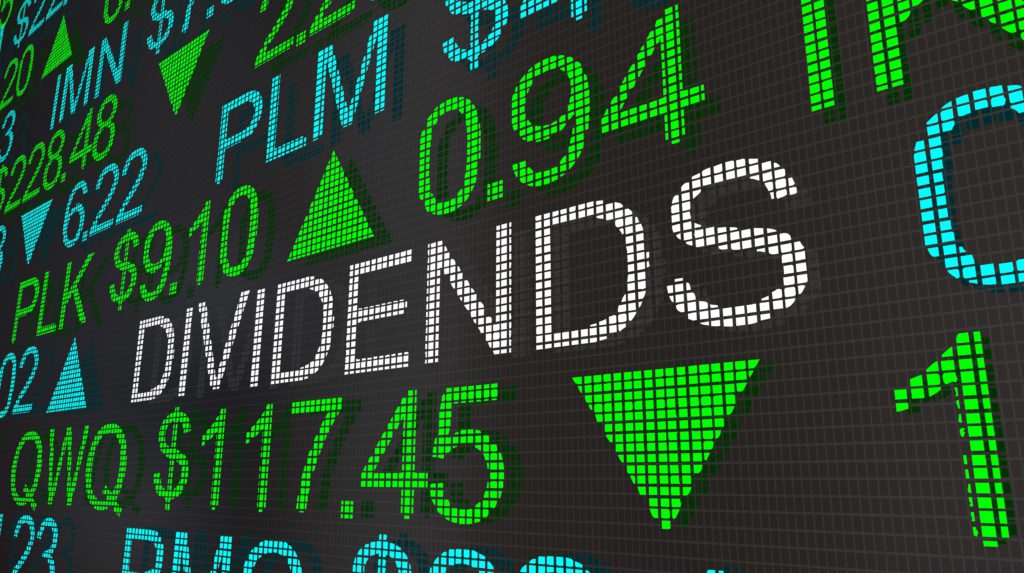The main purpose of investments is to make money by growing your capital. After investing, you might notice that regular payouts come in now and then from the company. They call this dividend, which in simple terms, means occasional payout. The pay comes from profits or accumulated retained earnings of the company, and the company determines how often it comes. This article looks at dividends, bringing to you everything that you should know.

What is the meaning of dividends?
A dividend is a share of profit in which a company pays out to its shareholders after an operating season. On generating profits and accumulated earnings, the money can be paid out as a dividend or reinvested into the business. Different factors determine which option the company goes for. Also, as a shareholder, the amount of dividend you receive depends on the number of shares you own. You can calculate dividend yield by dividing the annual dividend per share, divided by the share price.
How do dividends work?
The working principle of dividend payment is simple. A company generates profit and distributes dividends on a per-share basis to all shareholders of a common class. They make the payment upon approval by the board of directors. On approval, they make payment on a date known as the payable date. Here is a breakdown of the stems on how dividends work:
- A company accumulates retained earnings or generates profits
- The board of directors determines if it should be paid as dividends to shareholders and what percent should be reinvested
- On agreement, the board approves the payment
- They put an announcement out concerning dividend payment and includes the payday and value per share
- The dividend is finally paid to shareholders.
What is dividend yield?
This is a proportion that measures and compares a company’s annual dividends with its share price. The dividend s yield is mostly expressed as a percentage. A high yield mostly points to a weak share price and unsustainable dividend payments. The dividend amount announced by the company and the share price are the two main factors that determine the dividend yield. A company can increase dividend yield by raising the amount of dividend or indirectly dropping share price. Also, it can lower the dividend amount or indirectly increase its share price.
What are the types of dividends?
Companies can pay dividends in different forms to the shareholders. The available types of dividends payment are:
Cash:
this is pretty straightforward. They pay the dividend in form of money to the shareholders of the company. Payment could be through electronic wiring, cheque, or cash.
Stock:
instead of giving out cash, companies can choose to give out more shares to shareholders. In this payment, they give stocks on a pro-rata basis (depending on the number of shares you already own).
Assets:
also, companies can make payments to shareholders through assets like real estate and other investment securities. This practice is not common.
Special:
special dividends is a payment that they do outside their regular policy or regulations. It could be quarterly, annually, or even monthly, depending on the company. Special dividends are usually a result of the company making extraordinary profits.
Learn more on how to get unclaimed dividends in Nigeria
Why do companies pay dividends?
Although companies pay dividends for many reasons, the major purpose why they do so is to remain in good faith of investors. Paying dividends attracts and retain investors, maintaining their trust and favour as a result. Also, certain shares could be perceived as superior to their competitors if they pay dividends. On the flip side, a company that stops paying dividends may be seen to be failing. As an investor, you should check the portion of a company’s profit that goes into paying dividends, as this would tell you whether the sock may be in trouble or not.
How do dividends affect share prices?
Dividends payout announcement of a company may cause share prices to rise or fall. If there is an increase in dividends on announcement, it is likely that share price rises. However, there may be a fall too by an equivalent value after the dividend is paid. Also, dividend prices and payment could affect competitors’ share prices because investors are always seeling larger dividends. Large dividends shares mostly attract a higher number of investors.
If there is an increase in dividend price on announcement, investors would tend to buy more shares before payout. This would cause the share price to rise. However, there could also be a situation of the company expecting to use its reserves to pay dividends. In this situation, the share prices fall despite the announcement of dividend payment or increase.
E-dividends and how it works
It is common knowledge that the prefix “e-” stands for electronic and indicates where you use an automated electronic process instead of a traditional one. E-dividend refers to a dividend payment system in which the company makes direct payments to the account of shareholders. E-dividends abolishes the traditional rule of making payments with cheques or in cash and embraces wire transfer.
Conclusion
Although receiving dividends is awesome, not all companies pay dividends, which is why you should inquire before investing. You cannot rely on dividends due to the uncertainty involved in running a business. Some days you would smile to the bank, while others, you could be really disappointed.
